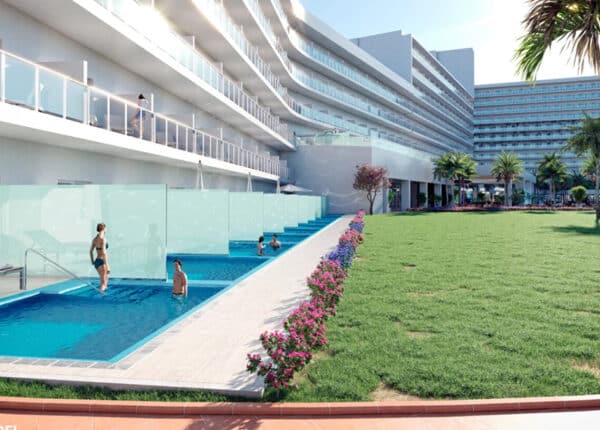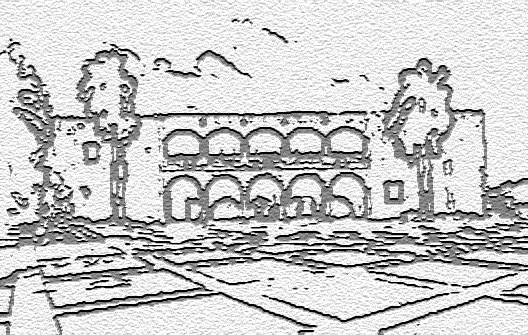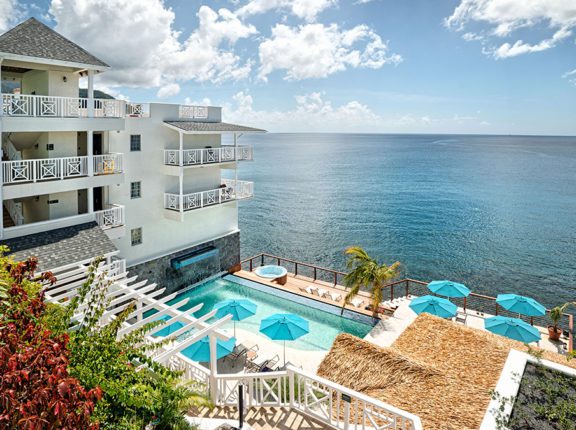Durandis: On Haiti, the Dominican Republic and Citizenship
By Ilio Durandis
CJ Contributor
HAITI AND THE DOMINICAN REPUBLIC share the island of Hispaniola. The western third is mostly inhabited by black people of African roots, while the eastern two-thirds is predominantly inhabited by Hispanics with people of a generally lighter skin complexion.
Both are former European colonies, one once French-dominated and the other formerly Spanish-controlled.
But today, the island of Hispaniola is in full crisis mode.
The relationship between the two sovereign states for the past few decades has been cordial at best, up until this past year.
What had been a mostly invisible tension building up between the two nations has become a large-scale international human rights crisis, following the now infamous court ruling in September.
The Constitutional Court of the Dominican Republic’s Sept. 23 ruling can be considered a cultural, social and political earthquake on the island of Hispaniola.
The ruling effectively takes citizenship away from 200,000 Dominicans born to Haitian parents, applying retroactively to those born in the country since 1929.
Its impact could be felt not only on the Caribbean island, but also throughout the modernized and ethical world, where human rights are considered sacred virtues.
My question is, how can any government denaturalize its own citizens, and force them to immerse themselves in a new culture and social values other than what they have known all their lives?
This is the exact implication of the court ruling for these more than 200,000 Dominicans with Haitian blood.
Despite many cultural and social similiarities between the two sides, the current crisis has much to do with race and economy than anything else.
This has led to some uncomfortable charges — that certain factions in the Dominican Republic seem to see themselves as superior to Haitians.
This sentiment is expressed in commentaries posted on some highly trafficked Dominican websites, where derogatory insults towards Haitians are nothing but normal. Other Dominican newspapers and well-known public figures have never shied away from that racial illusion either.
In every struggle, however, there are always exceptions.
In this case, Haitians are aware that not all Dominicans possess these views, or agree with the the tribunal’s ruling towards Dominican-born Haitians. Indeed, a number of groups in the Dominican Republic have publicy expressed their outrage at the Court’s ruling.
POLITICALLY, HAITI faces a very difficult task dealing with the Dominican Court’s ruling.
So far, the diplomatic approach of the Haitian government can be considered too passive, giving what appears to be a blatant disregard for human rights by the Dominican’s Constitutional Court.
It would be appropriate to consider the court’s ruling simply as a sovereign state trying to reform its own immigration issue.
But by making the ruling retroactive to 1929, and to have already started the process of deporting people born in the Dominican Republic to Haitian parents, it takes the sovereignty out of this issue and turns into a full-blown international affair.
When the Dominican Republic started to deport Dominican citizens to Haiti this is nothing short but an invasion of Haitian territory, violation of Haitian immigration laws, and a complete disregard for international laws as far as borders regulations are concerned.
Haiti and the Dominican Republic as sovereign states have rights to protect their borders, defend their people and enact policies, which are in their national interests.
But the Haitian government and people should not be forced to accept Dominicans who are exiled by their own government.
In the case of people with no legal papers living in the Dominican Republic, they should not be deported to Haiti not until all their legal papers can be checked and verified by authorized Haitian officials.
But whatever the reasons behind this ruling, what is most important is finding the quickest possible solution to this crisis.
It would not be in Haiti’s best interest to sit on a negotiating table with its neighbour, if Haiti’s sovereignty cannot respected, and the Dominican government cannot guarantee the protection of all Haitians living in the Dominican Republic.
Crucially, Haitians’ rights to legally emigrate and live as human beings in the Dominican Republic must also once and for all be resolved.
Haitian leaders need to avoid any distraction that other potentially important issues to the Dominican Republic might have on resolving this human rights violation.
The Dominican Republic is one of many countries that have signed the Convention on the Reduction of Statelessness. The ruling — and its planned application — would do the opposite.
IT WOULD BE preferable to have separate commissions dealing with the different and pressing issues that both sovereign states need to rectify, in order to guarantee peace, harmony, respect and economic prosperity between the two nations sharing the island of Hispaniola.
The call for boycotting Dominican products might help in dealing with the bilateral trade and economic issues between the two nations, but it might do very little in developing a much-needed long-term solution to what is often termed antihaitianismo in the Dominican Republic.
One of the best approaches to take is not to tell the Dominican Republic what type of laws they can have in their own country, but rather to have the international community serve as arbitrator to help fix this law.
As Martin Luther King, Jr, boldly stated injustice anywhere is a threat to justice everywhere. The Dominican Constitutional Court’s interpretation of the Constitution has led to injustice: if something is not done about it, could become a threat to human rights everywhere.
This might be a hard fact to accept by some Dominicans, but sooner rather than later, these Dominicans of Haitian blood must have their full citizenship restored — not only because it is legal, but also because it is the righteous and virtuous decision to make.
Ilio Durandis, a Caribbean Journal contributor, is the founder of Haiti 2015, a social movement for a just and prosperous Haiti. He is also a columnist with The Haitian Times.








